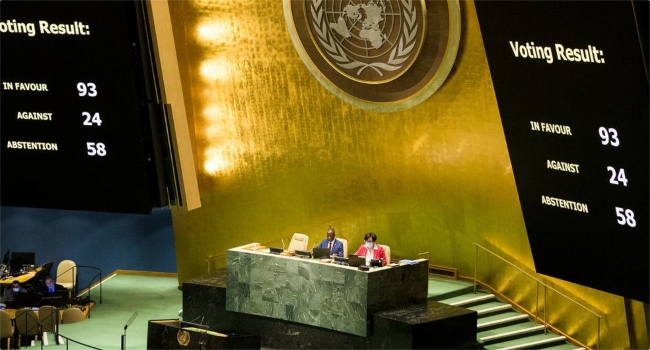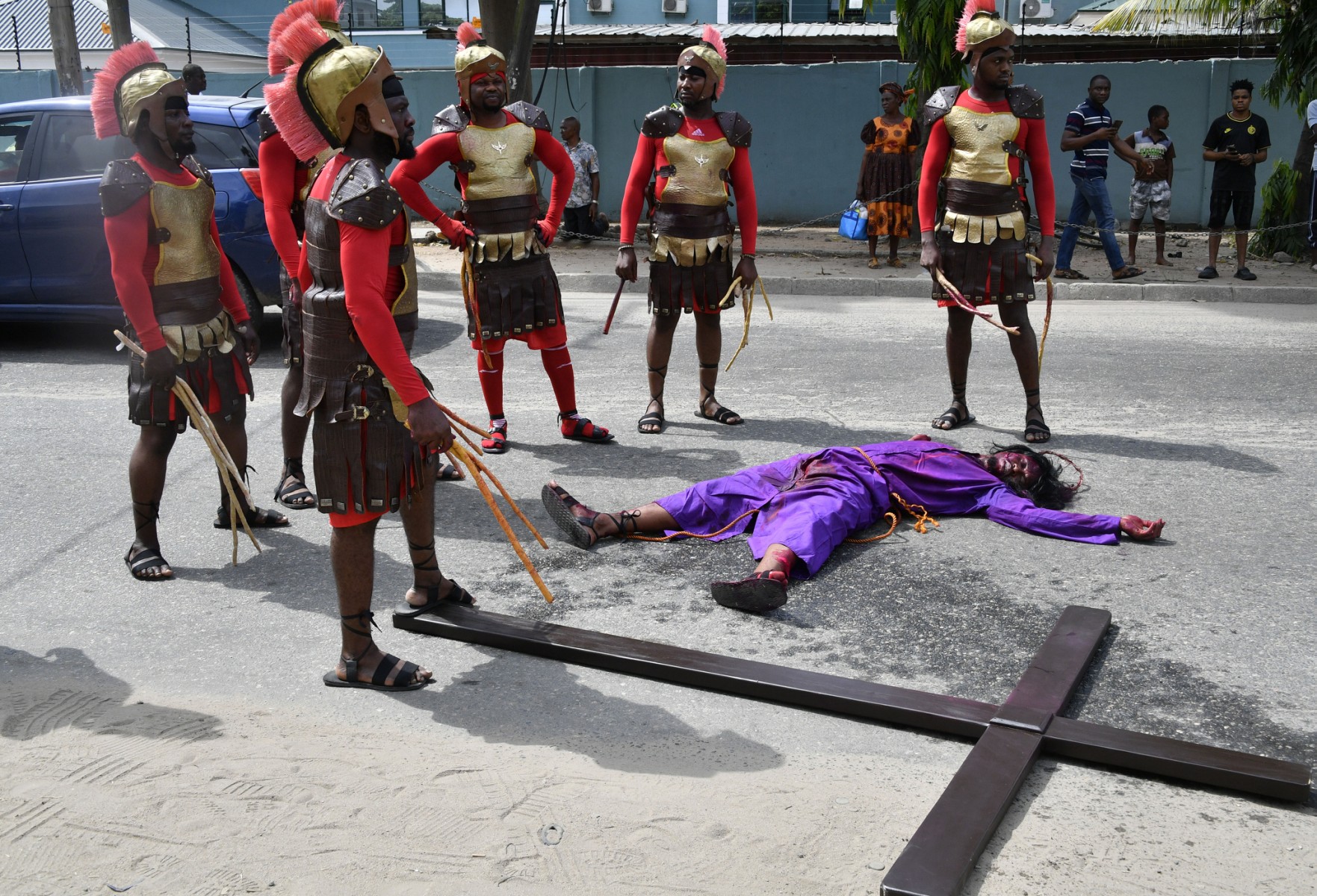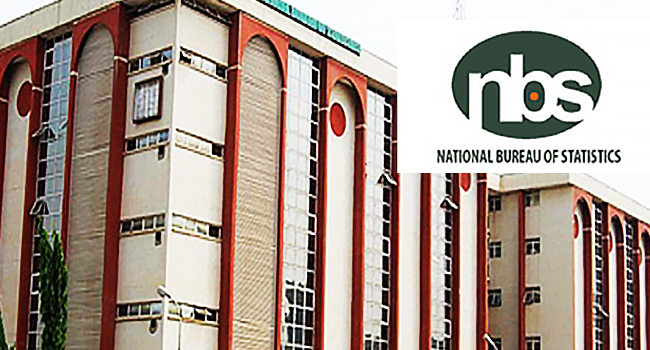
Nigeria abstained from voting in Thursday’s suspension of Russia from the Human Rights Council of the UN General Assembly.
A total of 93 member nations voted in favour of the suspension of the eastern bloc which has continued its invasion of Ukraine for nearly two months.
Twenty-four other countries, however, voted against it. Despite this, the resolution had a two-thirds majority of those voting, excluding members abstaining to vote in the 193-member Assembly.
Before the commencement of voting, Ukrainian Ambassador, Sergiy Kyslytsya, urged countries to support the resolution.
“Bucha and dozens of other Ukrainian cities and villages, where thousands of peaceful residents have been killed, tortured, raped, abducted and robbed by the Russian Army, serve as an example of how dramatically far the Russian Federation has gone from its initial declarations in the human rights domain,” Kyslytsya told the Assembly.
“That is why this case is unique and today (Thursday’s) response is obvious and self-explanatory.”
Besides Nigeria, 21 other African nations also abstained from the voting process, including Angola, Botswana, Cabo Verde, Cameroon, and Egypt.
Others were Eswatini, Gambia, Ghana, Guinea-Bissau, Kenya, Lesotho, Madagascar, Mozambique, Namibia, Niger, Senegal, South Africa, South Sudan, Sudan, Togo, and Uganda.
On the other hand, the likes of Algeria, Burundi, Central Africa Republic, Congo, Eritrea, Ethiopia, Gabon, Mali and Zimbabwe voted against the suspension.
The meeting marked the resumption of a special emergency session on the war in Ukraine and followed reports of human rights violations committed by Russian forces.
URGENT🚨
The UN General Assembly votes to suspend Russia’s membership in the UN Human Rights Council @UN_HRC
In favor: 93
Abstained: 58
Against: 24 pic.twitter.com/6EavdZJspc
— UN News (@UN_News_Centre) April 7, 2022
This is the second-ever suspension of a country from the Council, following the sanction imposed on Libya in 2011.
China, a strong ally of the Vladimir Putin-led administration voted against the suspension which signified a strong backing for the Kremlin.
Earlier, Russia had sent a veiled threat to some member states that a failure to vote against Moscow’s ouster would be interpreted as a show of support for a U.S.-led campaign to isolate Russia.




